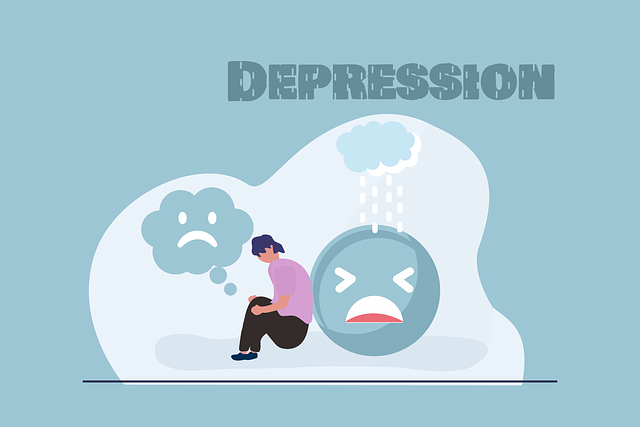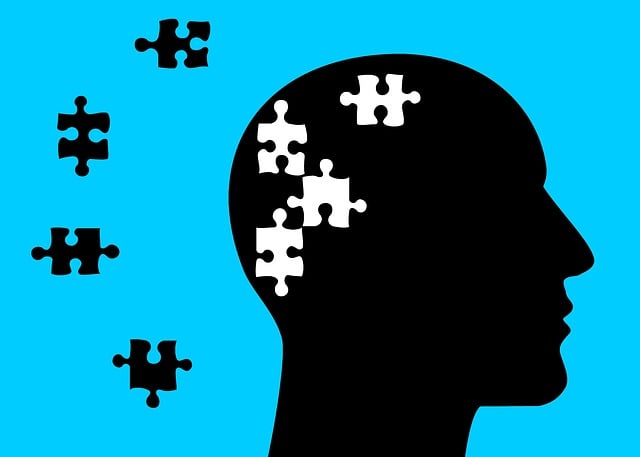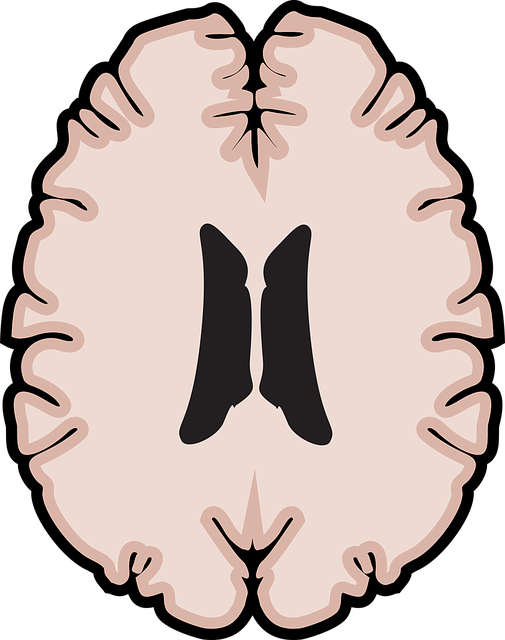Media significantly shapes societal perceptions of mental health, with accurate representations fostering empathy, reducing stigma, and encouraging help-seeking behaviors. Negative or stereotyped depictions, however, can perpetuate misinformation and marginalization, as seen in the often-harmful portrayal of postpartum depression (PPD) in new parents. To counter this, organizations should offer stress management workshops and consult mental health experts for more nuanced media portrayals. By integrating evidence-based practices like play therapy and CBT for young children, media platforms can promote understanding and destigmatize mental health issues. Collaborative efforts between the entertainment industry, mental health professionals, and community groups are crucial to revolutionizing mental health discourse, particularly regarding therapy for young children and PPD.
Mental illness representation in media significantly impacts public understanding of mental health. This article delves into the challenges posed by misrepresented conditions like postpartum depression, especially in young children’s mental health. We explore strategies for more accurate media depictions and emphasize the importance of therapy options tailored for young children with mental health concerns. By fostering collaborative efforts, we can drive positive change in media representation and provide better support for vulnerable populations. Additionally, this piece highlights effective therapies, such as those specifically designed for postpartum depression, to offer a comprehensive guide for both media creators and the general public.
- Understanding the Impact of Media Portrayal on Mental Health Awareness
- The Current State: How Media Often Misrepresents Postpartum Depression and Young Children's Mental Health
- Empowering Positive Change: Strategies for More Accurate Media Depictions
- Therapy Options for Young Children with Mental Health Concerns
- A Call to Action: Collaborating for Effective Media Representation and Support
Understanding the Impact of Media Portrayal on Mental Health Awareness

Media has a profound impact on shaping societal perceptions, especially when it comes to mental health. The way mental illnesses are portrayed in films, television shows, and other media platforms can significantly influence public understanding and attitudes towards these conditions. Accurate representation can foster empathy, reduce stigma, and encourage individuals to seek help. On the flip side, negative or stereotyped depictions can perpetuate misinformation, leading to further marginalization of those affected.
For instance, showing young children undergoing therapy for their mental health issues in a sympathetic yet realistic light can normalize the experience, prompting earlier interventions and better support systems. Similarly, bringing awareness to postpartum depression through public awareness campaigns and mindfulness meditation practices can initiate vital conversations. By presenting diverse narratives and promoting coping skills development, media has the potential to revolutionize how we address and discuss mental health concerns, ultimately improving access to care for all, including those struggling with postpartum depression.
The Current State: How Media Often Misrepresents Postpartum Depression and Young Children's Mental Health

The media’s portrayal of mental health, especially when it comes to new parents and young children, can be deeply problematic. Postpartum depression (PPD), a common yet often misunderstood condition, frequently finds itself misrepresented or exaggerated in popular culture. This misrepresentation contributes to the stigma surrounding mental illness and can deter individuals from seeking help for themselves or their loved ones. The current narrative tends to depict new mothers as overly emotional or even dangerous, which is far from reality.
When media portrays young children’s mental health issues, it often falls into simplistic stereotypes, failing to capture the complexity of these situations. This lack of accurate representation can be particularly harmful as it may prevent parents and caregivers from recognizing signs of distress in themselves or their children. Accessing appropriate therapy for young children becomes even more challenging when media guidance, such as crisis intervention tips, is scarce or presented without cultural sensitivity in mental healthcare practice. Organizations should consider implementing stress management workshops to empower parents with tools to navigate these sensitive topics and seek professional help when needed.
Empowering Positive Change: Strategies for More Accurate Media Depictions

Media has a significant impact on shaping societal perceptions, especially when it comes to mental health. Empowering positive change through accurate and sensitive media depictions is crucial. By prioritizing therapy for young children and addressing postpartum depression with nuance, the entertainment industry can contribute to breaking down stereotypes and promoting understanding.
Strategic initiatives, such as consulting with mental health professionals during production, can ensure risk management planning and the ethical portrayal of these complex issues. Additionally, focusing on inner strength development in characters can offer powerful narratives that inspire hope and resilience. Moreover, incorporating burnout prevention strategies for healthcare providers in media conversations can help destigmatize the challenges faced by those dedicated to mental health support.
Therapy Options for Young Children with Mental Health Concerns

Mental health concerns among young children are a growing area of concern, with increasing recognition of the need for early intervention and appropriate therapy. For infants and toddlers experiencing difficulties such as anxiety or depressive symptoms, often linked to postpartum depression in mothers, specialized therapeutic approaches are crucial. Play therapy and cognitive behavioral therapy (CBT) are two evidence-based methods that have proven effective for this age group.
Play therapy allows young children to express their emotions and work through challenges through play, fostering creativity and self-expression. This approach not only aids in building empathy within the child but also helps them develop essential coping strategies. CBT, tailored to their age, focuses on identifying negative thought patterns and teaching skills for mood management and self-esteem improvement. These therapy options, when accessible, can significantly impact a young child’s overall well-being and future mental health resilience.
A Call to Action: Collaborating for Effective Media Representation and Support

In the quest for accurate and compassionate mental illness representation in media, a unified effort from various stakeholders is imperative. The entertainment industry, mental health professionals, and community organizations must collaborate to ensure stories are told that not only reflect reality but also offer guidance during crises. By integrating crisis intervention guidance and emotional well-being promotion techniques, media platforms can foster understanding and reduce the stigma surrounding conditions like postpartum depression.
This collaboration extends beyond representation; it involves actively contributing to prevention efforts, especially for vulnerable populations such as young children. Integrating themes of depression prevention into narratives can subtly teach viewers about recognizing symptoms and seeking appropriate therapy. Together, these collaborative strategies have the potential to revolutionize how mental health is portrayed, ultimately enhancing societal support for those facing challenges like postpartum depression.
Media has a significant role in shaping societal perceptions of mental health. By accurately representing conditions like postpartum depression and young children’s mental well-being, we can reduce stigma and encourage support. Empowering positive change through strategic media depiction is crucial. Access to therapy options for young children with mental health concerns should be accessible and inclusive. It’s time for a collaborative effort to ensure media representation that fosters understanding and provides valuable support for those seeking help, especially when it comes to addressing postpartum depression in new parents.














